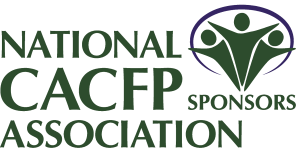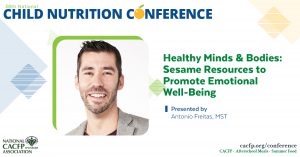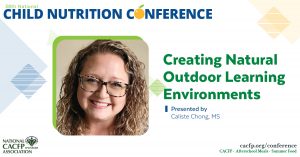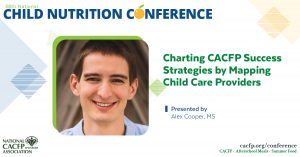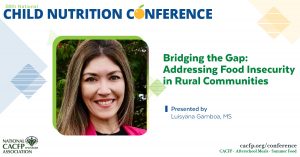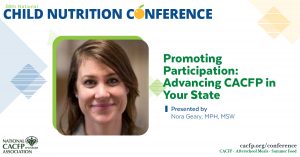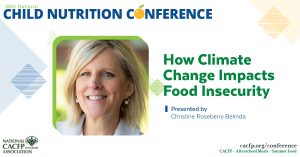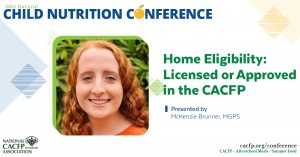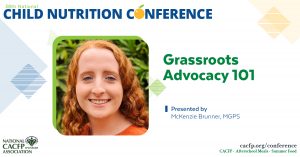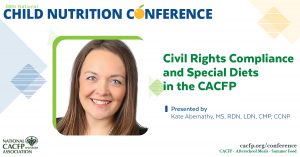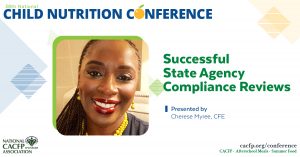2024 NCNC
Healthy Minds & Bodies: Sesame Resources to Promote Emotional Well-Being
Sesame Workshop is supporting the emotional well-being of young children and families through research-based resources and engaging content designed for the whole family. Our approach offers strategies to support all families – from celebrating joyful everyday moments, teaching children the essential skills they need to understand and manage their feelings, and helping parents and community providers recognize the signs of more serious mental health challenges.
Read MoreCreating Natural Outdoor Learning Environments
Let’s talk about natural outdoor learning environments! What are they and how can trainers support early care and education (ECE) programs to take a natural approach to their outdoor play spaces? Discover how these spaces encourage active play and healthy eating habits. Learn about different approaches and practical examples to work with ECE programs to create these environments.
Read MoreCharting CACFP Success Strategies by Mapping Child Care Providers
Child care is an important space where state agencies can mitigate food insecurity by providing healthy and nutritious food choices for children. Figuring out how and where to target those supports can be a challenge. Explore Child Care Aware of America’s CACFP mapping project, what they did, stakeholders they engaged, and a demonstration of the types of GIS map dashboards and story maps created.
Read MoreBridging the Gap: Addressing Food Insecurity in Rural Communities
Hunger negatively impacts a child’s physical and cognitive development, preventing them from reaching their full potential. Explore the root causes of food insecurity and its impact on children and families. Get strategies to identify families facing food insecurity and how to address their needs through programs and community partnerships.
Read MorePromoting Participation: Advancing CACFP in Your State
Learn how your state’s ECE system can promote participation in the CACFP through policies and activities, such as licensing regulations and recognition programs. Review data from the CDC’s updated ECE State Indicator Report (2023) and the Spectrum of Opportunities, which can be used to identify existing policies and activities that advance the CACFP.
Read MoreHow Climate Change Impacts Food Insecurity
The effects of a changing climate can cause food insecurity, worsen safe drinking water, alter the nutrient quality in food, and make it harder to access adequate nutrition equitably. Children’s vulnerability to climate change means we must increase climate awareness to support their healthy development now and in the future.
Read MoreHome Eligibility: Licensed or Approved in the CACFP
Both licensed and approved family child care home providers are permitted to participate in the CACFP. This flexibility allows more providers to join the food program ensuring children have access to healthy foods. Does your state have an approval process for non-licensed providers? Learn what the approval process can look like in practice to better serve your community.
Read MoreGrassroots Advocacy 101
Do you want to advocate for your program, but are unsure where to begin? Learn why we advocate for the CACFP and how to get started. Get tools and templates to make a plan so you can take action and make your voice heard.
Read MoreCivil Rights Compliance and Special Diets in the CACFP
What is required for a child with a food allergy or special diet need? Come and learn how to best support the needs of the child while balancing program regulations. Review real world examples with solutions and lists of creditable foods, tools and resources while maintaining compliance with civil rights.
Read MoreSuccessful State Agency Compliance Reviews
Are you a new State Agency compliance monitor for CACFP, or an experienced monitor looking to brush up on your review planning techniques? Explore effective monitoring techniques you can use in the field.
Read More